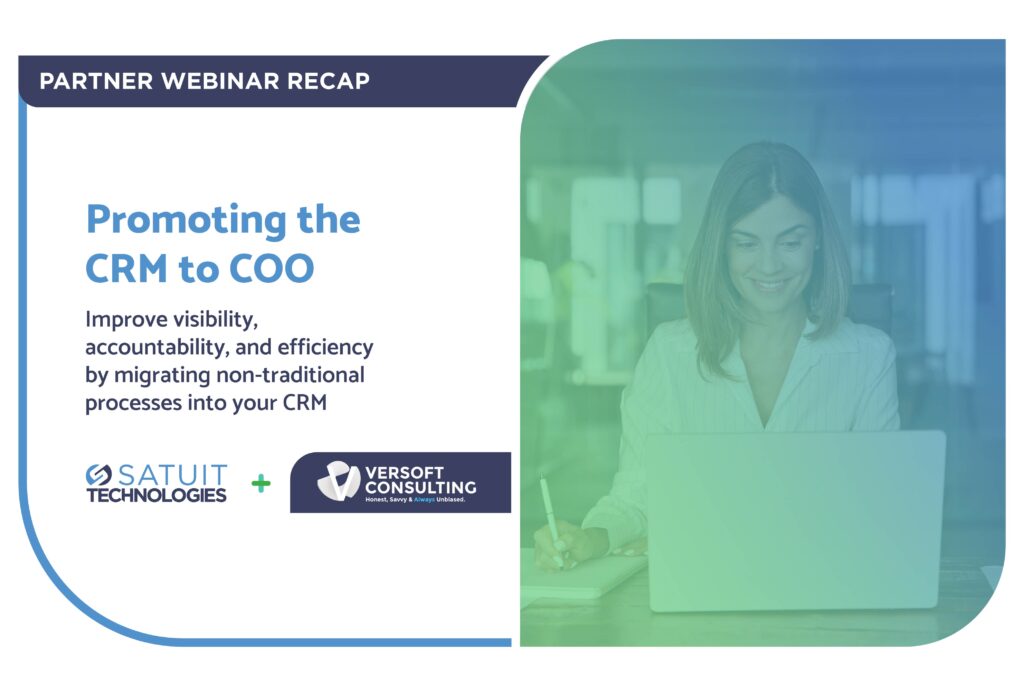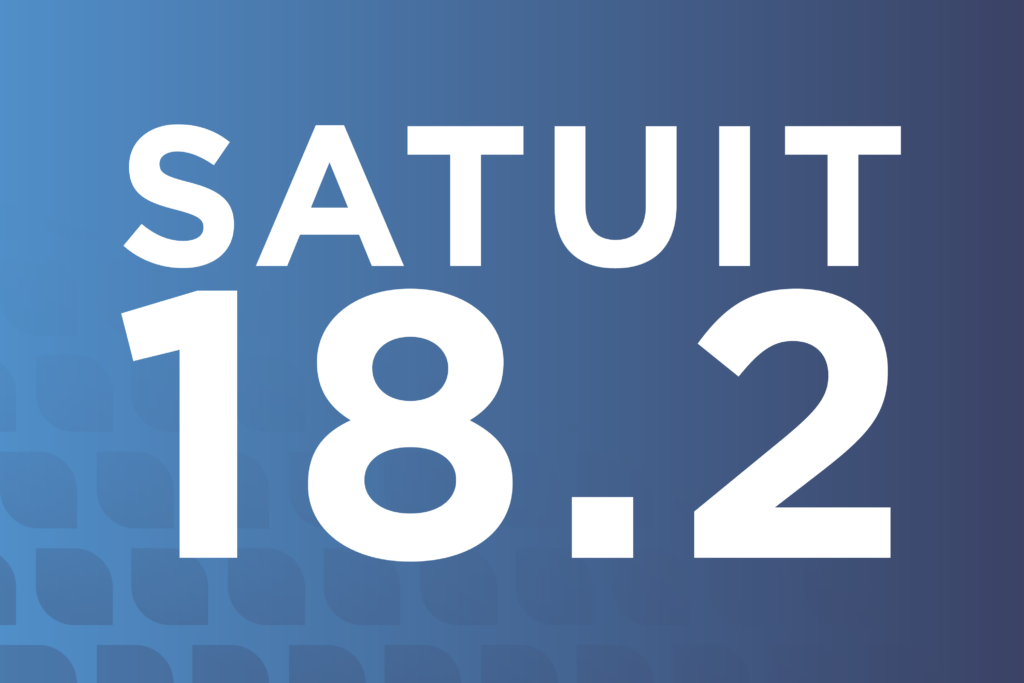In the recent insightful webinar, Satuit Technologies collaborated with Versoft Consulting to explore the numerous innovative ways a Customer Relationship Management (CRM) system could improve a firm’s operational efficiency outside of typical fundraising and client services use cases. The webinar was presented by Ben Wieber, Consulting Manager for Versoft Consulting and James Plassmann, General Manager of Satuit Technologies. They dived into several key topics ranging from task management, data governance, consultant relations, through to vendor management and non-client portal use cases.
How CRM Helps With Task and Workflow Management
An efficient CRM can effectively rebalance workflows by sharing tasks within the team. With features that display action items prominently on the dashboard, you can easily monitor these essential pieces of timely information right from the homepage. The automation of recurring activities, task assignments, and notifications enhances the overall operational workflows, making sure nothing falls through the cracks. Document approvals can also be tracked, making sure the entire process is transparent and easy to monitor.
Utilize CRM to Help with Data Governance
The CRM system can help preserve clean data for reporting needs. This includes identifying clients’ missing agreements, maintaining ex-clients access to reports/documents, ensuring contacts are up to date, and more. When responsibilities are appropriately delegated, the CRM system can help establish good data practices. In addition, this webinar underscored the importance of having clear definitions for each data field and setting reminders for data cleanup.
Consultant Relations
Effective management of consultant relations within a CRM system is essential for understanding perceptions of your products. By conducting sentiment analysis, businesses can track individual consultants’ opinions on specific products, identifying advocates and detractors. This involves monitoring each consultant’s history with opportunities, such as how many they brought in, conducting win/loss analyses, and staying updated on blind RFPs. Additionally, tracking assets under management (AUM) offers insights into consultants’ impact, enabling organizations to make informed decisions and strengthen partnerships.
Vendor Management
Vendor management through a CRM system involves tracking communications and consolidating contracts in one accessible location. Users can receive timely reminders about renewals and renegotiations, helping them stay proactive in managing vendor relationships. It’s critical to maintain key vendor information, including contact details and addresses, while attaching agreements and monitoring contract statuses, approvals, and important dates like start, end, and termination notifications. With about half of firms using vendor capabilities within their CRM, adopting these practices can significantly improve organization and efficiency in vendor management.
Non-Client Portal Use Cases
Aside from standard client use, a portal can also improve communications and activity tracking with other stakeholders such as prospects, advisors, consultants, and partners. For instance, it can store and share marketing information, provide a single point of access for shared client documents, and grant access to key IP and marketing collateral.
Final Takeaways from the SatuitCRM Webinar
Ben highlighted that managing user roles and permissions within CRM systems is vital for streamlining operations and enhancing team collaboration. By establishing clear hierarchies and access controls, organizations can promote consistent reporting and system usage. Implementing approval processes for admin and user groups helps make sure changes are relevant and beneficial, minimizing disruptions. Regularly tracking interactions with clients and prospects keeps firms informed about recent activities and fosters more robust relationships. To drive success, organizations should create a dedicated CRM committee to oversee changes and maintain consistency across user profiles, ultimately improving the efficiency of CRM initiatives.
With 71% of the webinar participants using CRM for pipeline management and 100% for client relations, it is clear just how vital a robust CRM system is for streamlined operations and improved interpersonal relationships. The SatuitCRM to COO webinar offered an in-depth exploration of the multifaceted capabilities of a CRM system, highlighting the numerous ways it can enhance your business.






